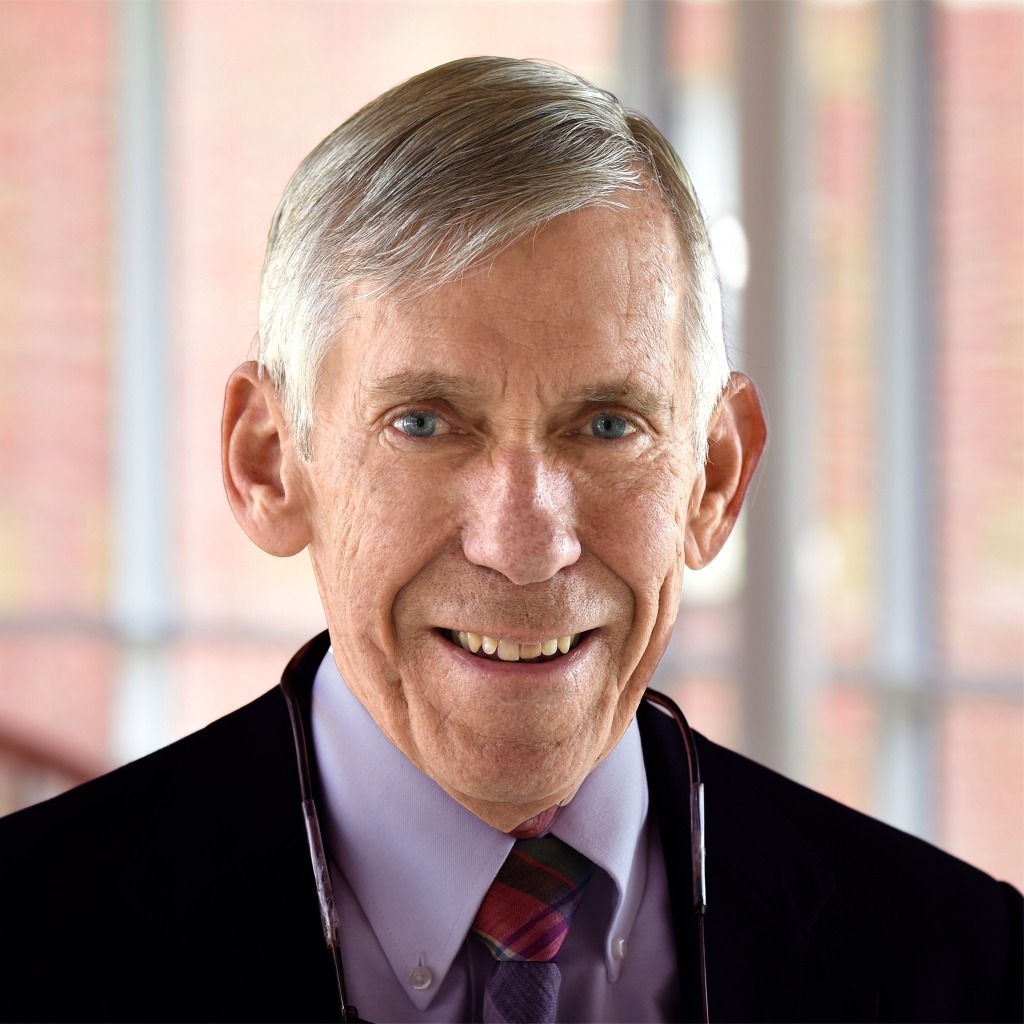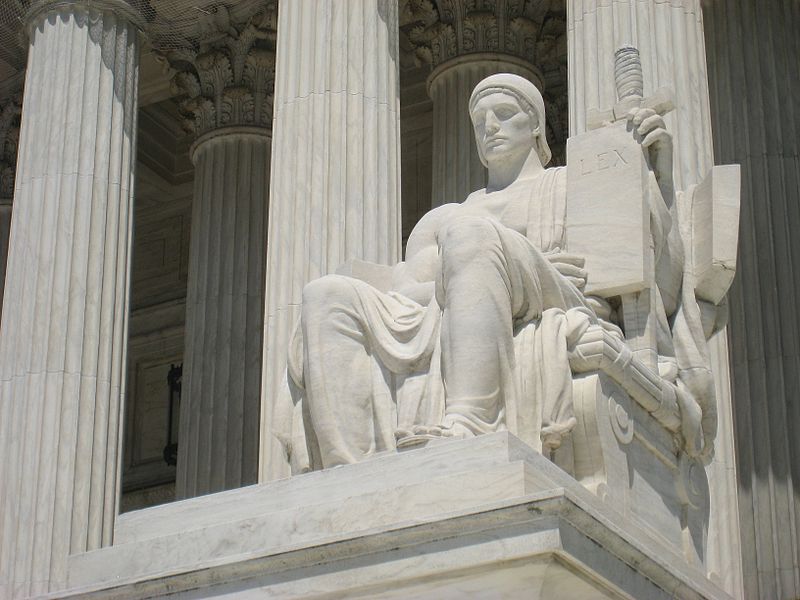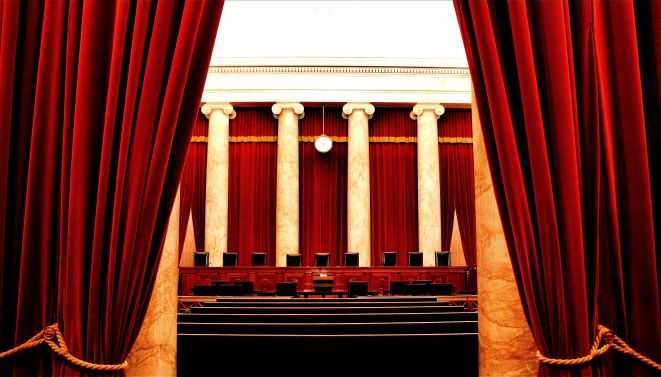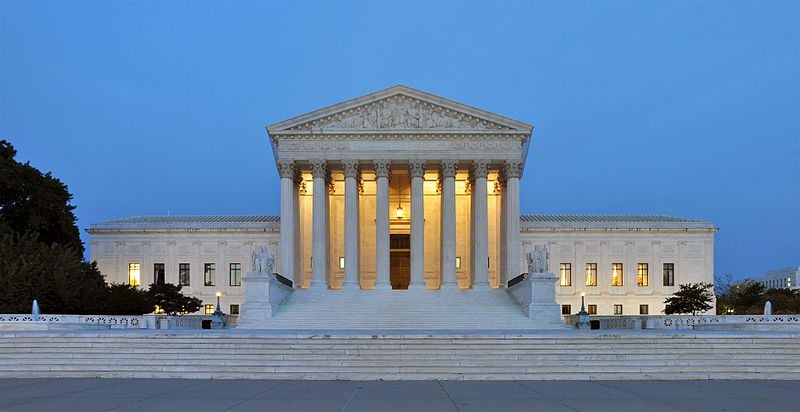Some Thoughts on the Process for Considering Nominees to the Supreme Court
 The Senate Judiciary Committee hearing for Supreme Court nominee Brett Kavanaugh concluded last week with a confirmation vote expected soon. James Todd, a lecturer in the Woodrow Wilson Department of Politics in the College and Graduate School of Arts & Sciences and the Osher Lifelong Learning Institute at the University of Virginia, offers commentary on Supreme Court nominations and the confirmation process.
The Senate Judiciary Committee hearing for Supreme Court nominee Brett Kavanaugh concluded last week with a confirmation vote expected soon. James Todd, a lecturer in the Woodrow Wilson Department of Politics in the College and Graduate School of Arts & Sciences and the Osher Lifelong Learning Institute at the University of Virginia, offers commentary on Supreme Court nominations and the confirmation process.
Some Thoughts on the Process for Considering Nominees to the Supreme Court

 I started paying attention to Senate Judiciary Committee hearings on nominees to the Supreme Court back in 1981, when Sandra Day O’Connor was nominated by President Ronald Reagan to be the first woman to serve on the nation’s highest court. There was some controversy over some of her views, particularly over her views on abortion. O’Connor took the path that most nominees in the years since have taken, declining to answer questions on issues that might come before her as a judge. Her silence on abortion caused the Rev. Jerry Falwell to state that “good Christians” should be concerned about her nomination. O’Connor’s friend, Senator Barry Goldwater of Arizona, responded that “Every good Christian ought to kick Falwell right in the ass.” Despite the concern, O’Connor’s nomination was approved unanimously by the Committee and by a vote of 99-0 in the Senate, falling one vote short of unanimous only because one senator who supported her was out of Washington at the time of the vote.
I started paying attention to Senate Judiciary Committee hearings on nominees to the Supreme Court back in 1981, when Sandra Day O’Connor was nominated by President Ronald Reagan to be the first woman to serve on the nation’s highest court. There was some controversy over some of her views, particularly over her views on abortion. O’Connor took the path that most nominees in the years since have taken, declining to answer questions on issues that might come before her as a judge. Her silence on abortion caused the Rev. Jerry Falwell to state that “good Christians” should be concerned about her nomination. O’Connor’s friend, Senator Barry Goldwater of Arizona, responded that “Every good Christian ought to kick Falwell right in the ass.” Despite the concern, O’Connor’s nomination was approved unanimously by the Committee and by a vote of 99-0 in the Senate, falling one vote short of unanimous only because one senator who supported her was out of Washington at the time of the vote.
 It seems incredible today to imagine the Judiciary Committee or the full Senate voting unanimously on anything, let alone a nominee to the nation’s highest court. That has something to do with the nastiness and hyper-partisanship that plagues our Congress and with the fact that our two political parties are no longer the broad-based parties they once were. As moderate and liberal Republicans vanished from the scene, so too did moderate to conservative Democrats. Also changed has been the elimination of the filibuster, done first by Democrats for lower federal court nominations and, starting with the nomination of Neil Gorsuch, done by the Republicans with regard to Supreme Court nominees. As a result, if a president’s party controls the Senate, there is no need to seek a moderate or centrist jurist to fill a vacancy since it only takes a majority vote to confirm.
It seems incredible today to imagine the Judiciary Committee or the full Senate voting unanimously on anything, let alone a nominee to the nation’s highest court. That has something to do with the nastiness and hyper-partisanship that plagues our Congress and with the fact that our two political parties are no longer the broad-based parties they once were. As moderate and liberal Republicans vanished from the scene, so too did moderate to conservative Democrats. Also changed has been the elimination of the filibuster, done first by Democrats for lower federal court nominations and, starting with the nomination of Neil Gorsuch, done by the Republicans with regard to Supreme Court nominees. As a result, if a president’s party controls the Senate, there is no need to seek a moderate or centrist jurist to fill a vacancy since it only takes a majority vote to confirm.
At the same time, presidents from both parties have placed a lot more emphasis on nominating individuals who have proven track records, almost invariably by long service on the United States Court of Appeals. Gone are the days when presidents sought out the top judicial scholars, such as Holmes or Frankfurter, or statesmen such as Charles Evans Hughes or William Howard Taft (who did, however, have experience on both the U.S. District and Court of Appeals Courts). As a result, support or opposition to a nominee in the Senate confirmation hearing tends to breakdown along party lines with senators of the president’s party praising the nominee and members of the other party opposing him or her and looking for anything they can use to try to defeat the nomination. The stakes are particularly high when it is anticipated that a nominee will shift the Court either to the left or the right.

 Politics has not just recently become involved in the confirmation process. George Washington had his second nominee for Chief Justice, John Rutledge of South Carolina, rejected. Rutledge, one of the founders who participated at the Constitutional Convention, was rejected because of his position on the Jay Treaty. Congress eliminated two seats on the Court to keep President Andrew Johnson from placing anyone on it. More recently, Nixon had two nominees blocked—Clement Haynesworth of North Carolina and Harold Carswell of Florida. Both were rejected because of earlier statements on race (Carswell as city attorney for Tallahassee had overseen the transfer of the city swimming pool and golf course from public to private so they wouldn’t have to be integrated!). Interestingly, our current Attorney General, Jefferson Beauregard Sessions, III, was rejected as a nominee for the Court of Appeals based partly on his earlier statements on race. Ronald Reagan’s nomination of Robert Bork to the Supreme Court was defeated partly because of Bork’s role firing Special Prosecutor Archibald Cox at the bidding of President Nixon and partly because Bork, who answered questions more freely than any recent nominee, argued that there was no right to privacy in the Constitution, and it was not the proper role for a judge to find one.
Politics has not just recently become involved in the confirmation process. George Washington had his second nominee for Chief Justice, John Rutledge of South Carolina, rejected. Rutledge, one of the founders who participated at the Constitutional Convention, was rejected because of his position on the Jay Treaty. Congress eliminated two seats on the Court to keep President Andrew Johnson from placing anyone on it. More recently, Nixon had two nominees blocked—Clement Haynesworth of North Carolina and Harold Carswell of Florida. Both were rejected because of earlier statements on race (Carswell as city attorney for Tallahassee had overseen the transfer of the city swimming pool and golf course from public to private so they wouldn’t have to be integrated!). Interestingly, our current Attorney General, Jefferson Beauregard Sessions, III, was rejected as a nominee for the Court of Appeals based partly on his earlier statements on race. Ronald Reagan’s nomination of Robert Bork to the Supreme Court was defeated partly because of Bork’s role firing Special Prosecutor Archibald Cox at the bidding of President Nixon and partly because Bork, who answered questions more freely than any recent nominee, argued that there was no right to privacy in the Constitution, and it was not the proper role for a judge to find one.
For many years now I have been criticizing the committee confirmation process contending that it has become a circus and a farce. Nominees are coached about how to answer – and avoid answering – questions in sessions organized by the White House. Some Republican Senators participated in that recently with Judge Kavanaugh by playing the roles Democratic members of the committee were expected to play. Senators themselves are coached as to how to ask questions and how to follow up. In spite of that, or perhaps because of it, very little useful information comes out of most hearings. Nominees evade and obfuscate and Senators preen and posture (especially those with presidential ambitions!).
Years ago I attended Ruth Bader Ginsburg’s confirmation hearing. She was asked by one of the Senators whether she thought the death penalty was cruel and unusual and thus unconstitutional under the Eighth Amendment. The Senator asking the question had probably heard rumors that she opposed the death penalty. If she had said that it was unconstitutional it would then have been possible to paint her as an activist judge, reading something into the Constitution that was clearly not there (the Fifth Amendment talks about rights in a capital case, meaning the Framers of that Amendment accepted the death penalty and therefore could not have intended to ban it with the Eighth Amendment’s ban on cruel and unusual punishment). Then-judge Ginsburg declined to answer the question on the ground that the issue might come before her as a judge. She was then asked if she was familiar with dissenting opinions that had been written by Justices Brennan and Marshall arguing that the death penalty was unconstitutional. She said she was. Well, she was then asked, were those correct opinions? Again she declined to answer. It was a cordial exchange, but in thinking back on it I equated it to a situation where a smiling senator passed a live land mine to her. She had to take it in her hands, hold it, and then hand it back to the senator. If it didn’t go off, she would be confirmed.
Is there anything good that comes out of this process? Yes, I think there is. First of all, if there is anything in the nominee’s past that we should know about or that is disqualifying, it is going to come out. (The downside of that is that qualified nominees might decline an offer of a seat on the federal bench because they don’t want to put themselves and their family and friends through such an invasive investigation.) Second, we get to see how intelligent the judge is, even if it’s only in seeing how well she or he dodges questions. And third, the nominee is forced to sit through a seminar about the proper role of a judge and the matters of concern to the senators on the committee. One wonders if Judge Kavanaugh will think the same way about the extent of the Second Amendment’s protection of gun rights after hearing Connecticut Senator Blumenthal describe being at the Newtown School just after the young students and teachers were gunned down with a gun ownership of which Judge Kavanaugh has previously said is constitutionally protected.
 In the last analysis, however, hearings today do not seem to make much difference, and the nominees go on to lifetime appointments where they can vote in whatever way they want. They are subject to impeachment, yes, but our longstanding tradition is that judges shall not be impeached or removed for political reasons.
In the last analysis, however, hearings today do not seem to make much difference, and the nominees go on to lifetime appointments where they can vote in whatever way they want. They are subject to impeachment, yes, but our longstanding tradition is that judges shall not be impeached or removed for political reasons.
- A Revolution in the Air: The Wright Brothers Take to the Sky on December 17, 1903
- Musings on National Violin Day
- Making the Promise Real: How a UN Tax Convention Can Fulfill the UNDHR’s Vision
- UVA Club of Atlanta: Virtual Pilates Class
- UVA Club of Alexandria: TaxSlayer Gator Bowl Game Watch
- UVA Club of the Eastern Shore: TaxSlayer Gator Bowl Game Watch
